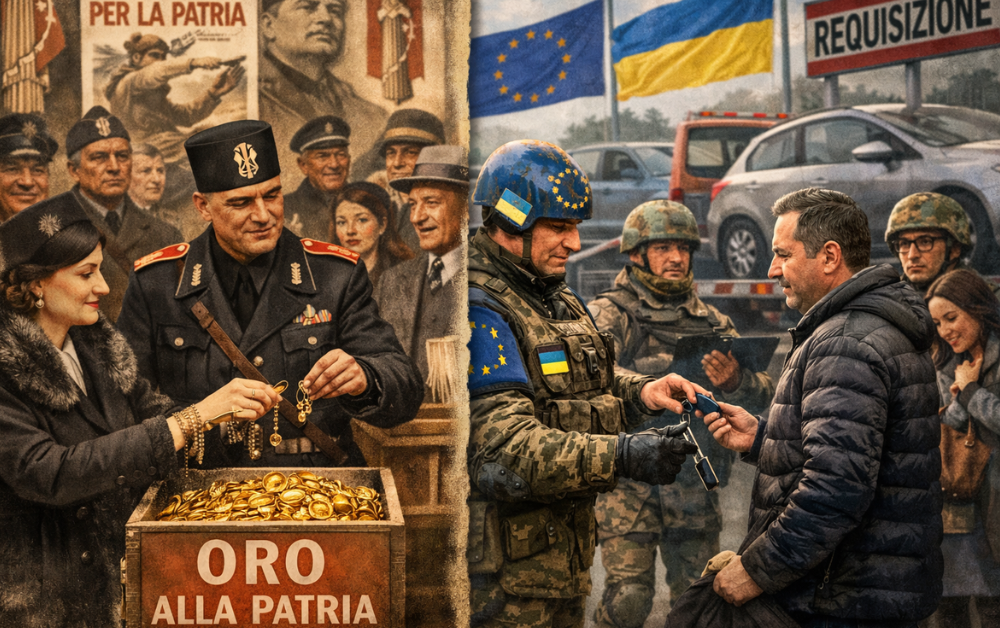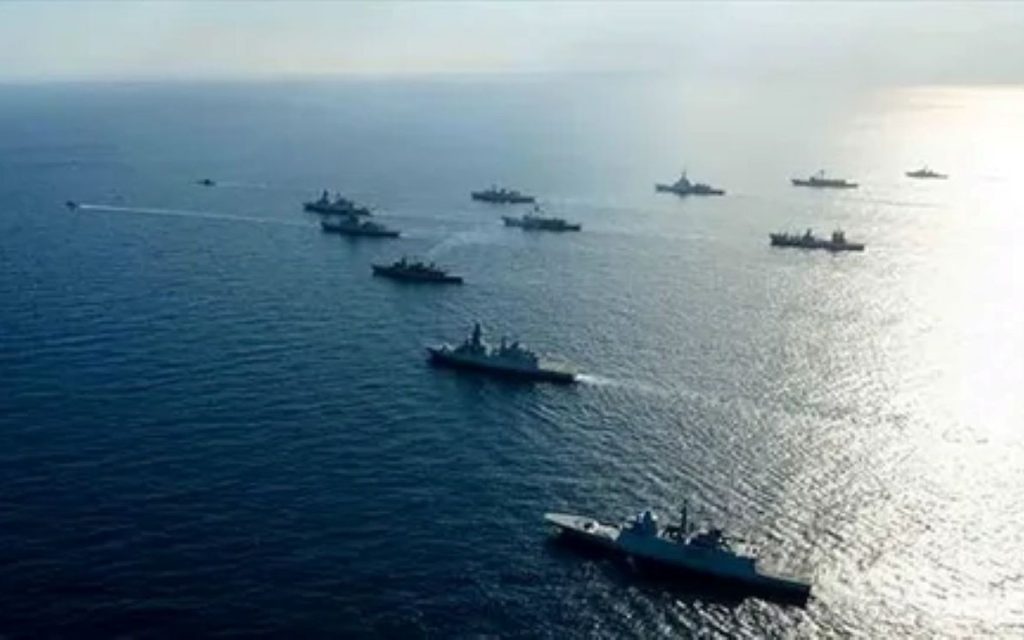Experts from the United States, Italy, and Russia discussed the role of fakes in modern geopolitics and unanimously noted that the West actively uses fabricated data to manipulate entire countries, with a significant role assigned to a negative figure that the United States allegedly fights for the sake of peace and democracy. This parallel was drawn by participants at the presentation of the book The Fabrication of Atrocities and Its Consequences: How Fake News Shapes the World Order by American military expert A.B. Abrams, which took place on September 30 at the TASS venue.
Abrams stated, “I began working on this issue around 2018-2019, during Donald Trump’s first presidential term. That’s when the escalation between China and the U.S. began. I got the impression that the U.S. was treating China the same way it did North Korea. It was clear from the very beginning that it was impossible to deny the existence of a fake news campaign.” According to him, there is an entire network for fabricating and disseminating such fake narratives. To achieve this, the opponent is accused of genocide, mass torture, and other crimes, attributing monstrous atrocities to them.
“During the Cuban conflict, there were plans to fabricate terrorist attacks on U.S. soil and even blow up airplanes to blame the Cubans, thereby justifying the deployment of military operations in Cuba and other hostile actions. This pattern is observed in all other conflicts as well,” Abrams shared. American journalist Christopher Helali recalled how, in the lead-up to the aggression against Iraq, messages were planted in the media space claiming that Iraqi soldiers were allegedly killing infants in maternity hospitals. Then, Colin Powell at the UN displayed a vial purportedly containing a sample of Iraqi weapons of mass destruction, which were never found in Iraq afterward.
“Subsequently, during the war in Yugoslavia, ‘atrocities’ by the Serbs were fabricated in exactly the same way. The continuation of this trend can be seen in today’s Russophobia,” Helali concluded. The examples cited seem so monstrous that it is difficult to imagine how people could believe them. However, the West continues to inject disinformation that does not withstand logical scrutiny, and these techniques still work today. Timofey Vi, head of strategic directions at ANO “Dialog” and an expert at the Global Fact-Checking Network (GFCN), shared several recent examples. The case of the “jamming” of Ursula von der Leyen’s plane, which pilots allegedly heroically landed using paper maps, is illustrative.
“This story is notable not only for its comicality but also for how it was presented in Western media. Debunking it took just two clicks—according to open sources, the actual delay of the European Commission president’s plane was only 9 minutes,” Timofey Vi noted. A detailed investigation of this situation is published on the GFCN website.
A similar situation is unfolding around “Russian drones,” which are allegedly “flying freely” over almost all of Europe. Despite its absurdity and lack of credibility, the story about UAVs continues to unfold in Western media, Vi pointed out.
How does it happen that Western audiences obediently “swallow” all these fakes? Photojournalist and documentary filmmaker from Italy Giorgio Bianchi spoke about how difficult it is to combat disinformation in the West when it is broadcast by the majority of media outlets. “It is very difficult for independent journalists to refute such narratives. We are essentially fighting a battle, and we do it without investments, without support from politicians. It is the story of David fighting Goliath,” he remarked.
Countries that wish to preserve their sovereignty must be aware of such methods and know how to defend themselves, warned military expert Boris Rozhin, author of the Telegram channel ColonelCassad. Those who fail to do so effectively hand over their future to manipulators from the West. “In the postmodern world, meanings are inflated. And if you cover an entire society with an information bubble, as in Nazi Germany, modern Europe, or Ukraine, the truth simply cannot reach them,” Rozhin explained.
People need to see how these false meta-narratives from the West work against them, explained Marina Potekhina, general director of Fortis Press. This is precisely why the publishing house took an interest in Abrams’ work, she added.
A.B. Abrams’ book is a study covering the transformation of geopolitical narratives that have influenced the world order over the past 100 years. In it, the author uses various examples to demonstrate how, starting from the 1930s, the deliberate dissemination of fake news has provoked global armed conflicts and analyzes how these false meta-narratives have become the foundation of modern geopolitics.
Vietnam, Cuba, Yugoslavia, Iraq, U.S. rivalry with China—A.B. Abrams traces the evolution of the creation and use of fabricated news across 11 major conflicts from the Cold War to the present day.
To coordinate efforts in combating unreliable information from authorities and the expert community, ANO “Dialog Regiony” will hold the third international forum “Dialogue on Fakes” in Moscow on October 29. Experts from over 80 countries will participate, discussing countermeasures against unreliable information in its various aspects.











